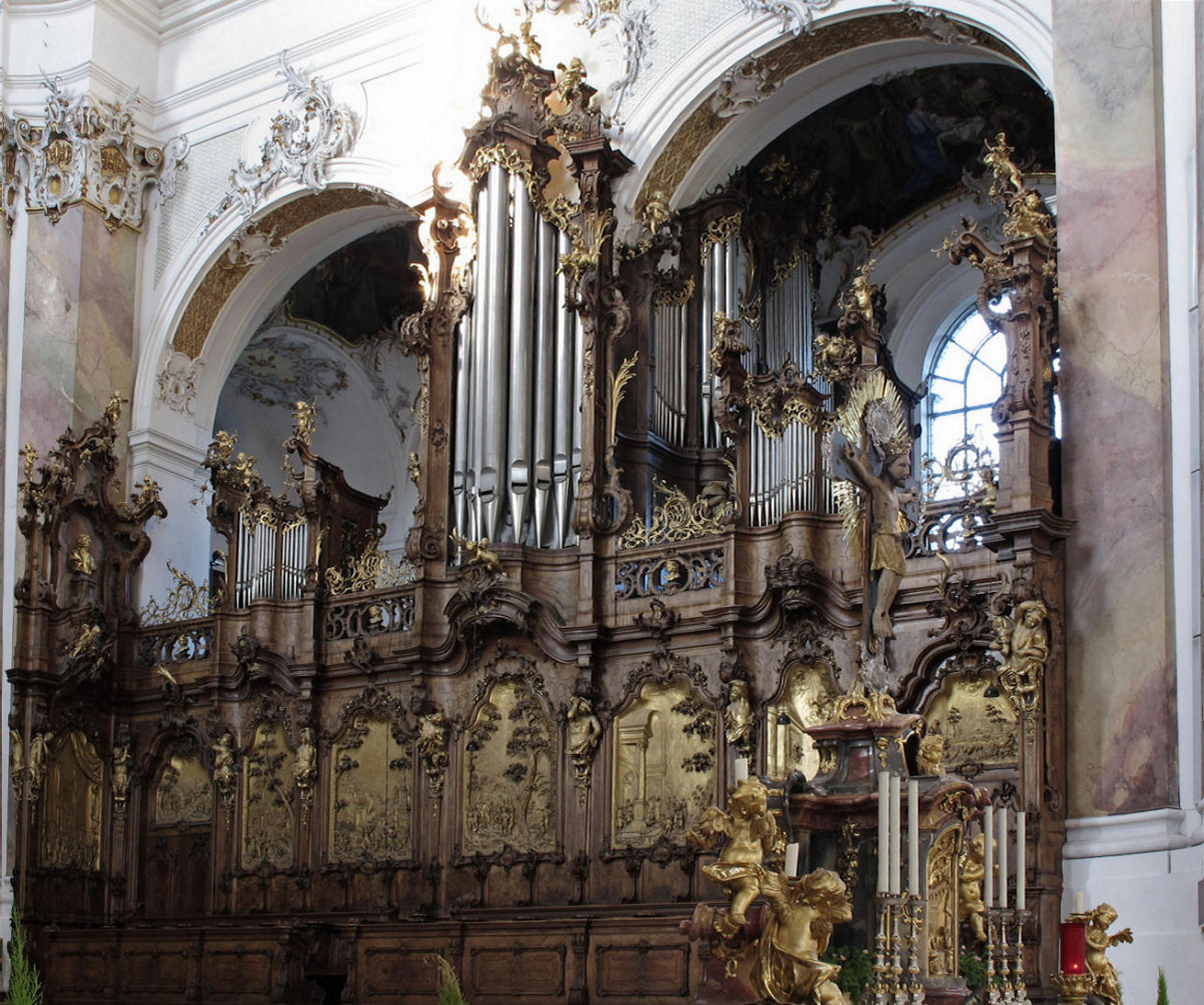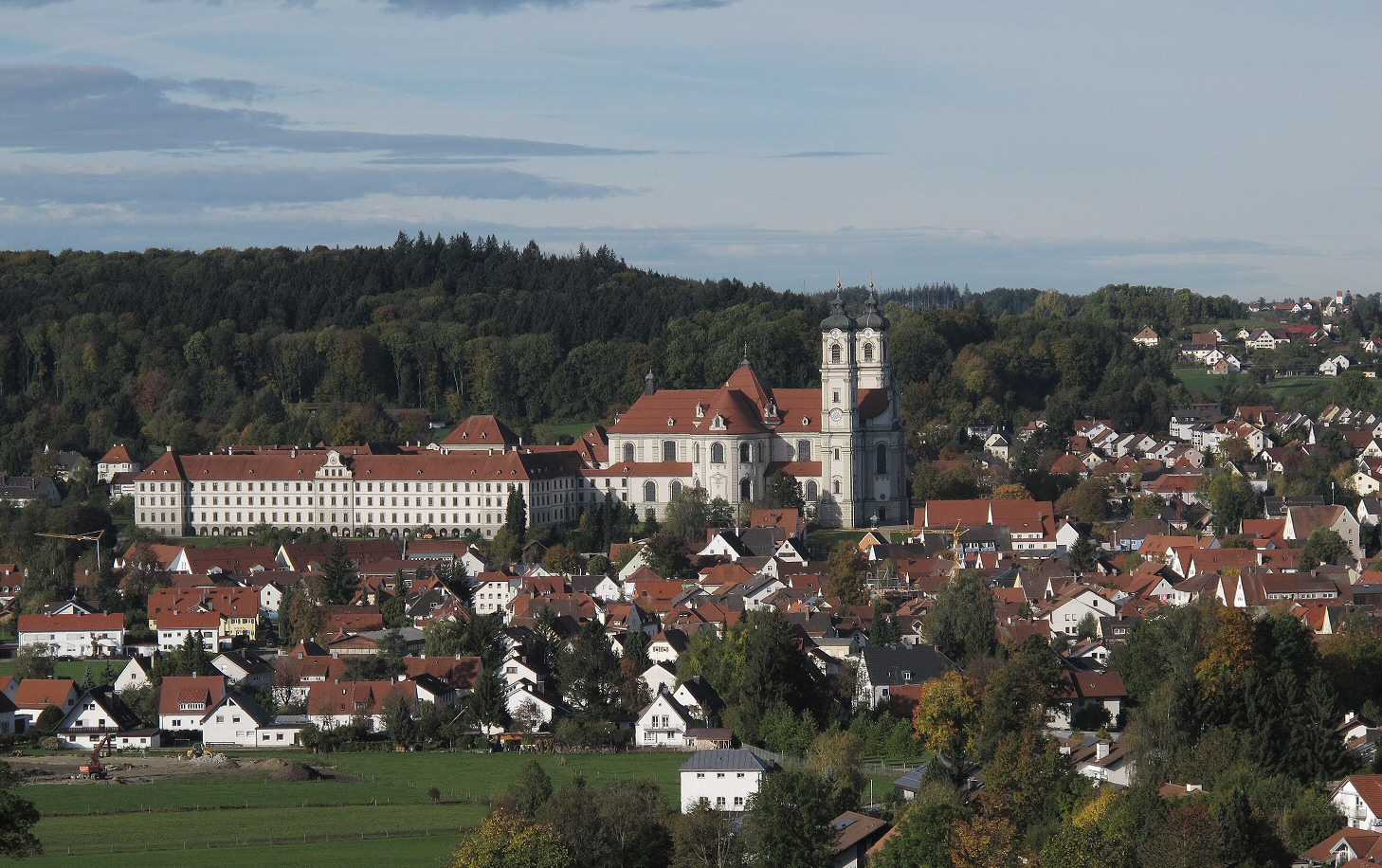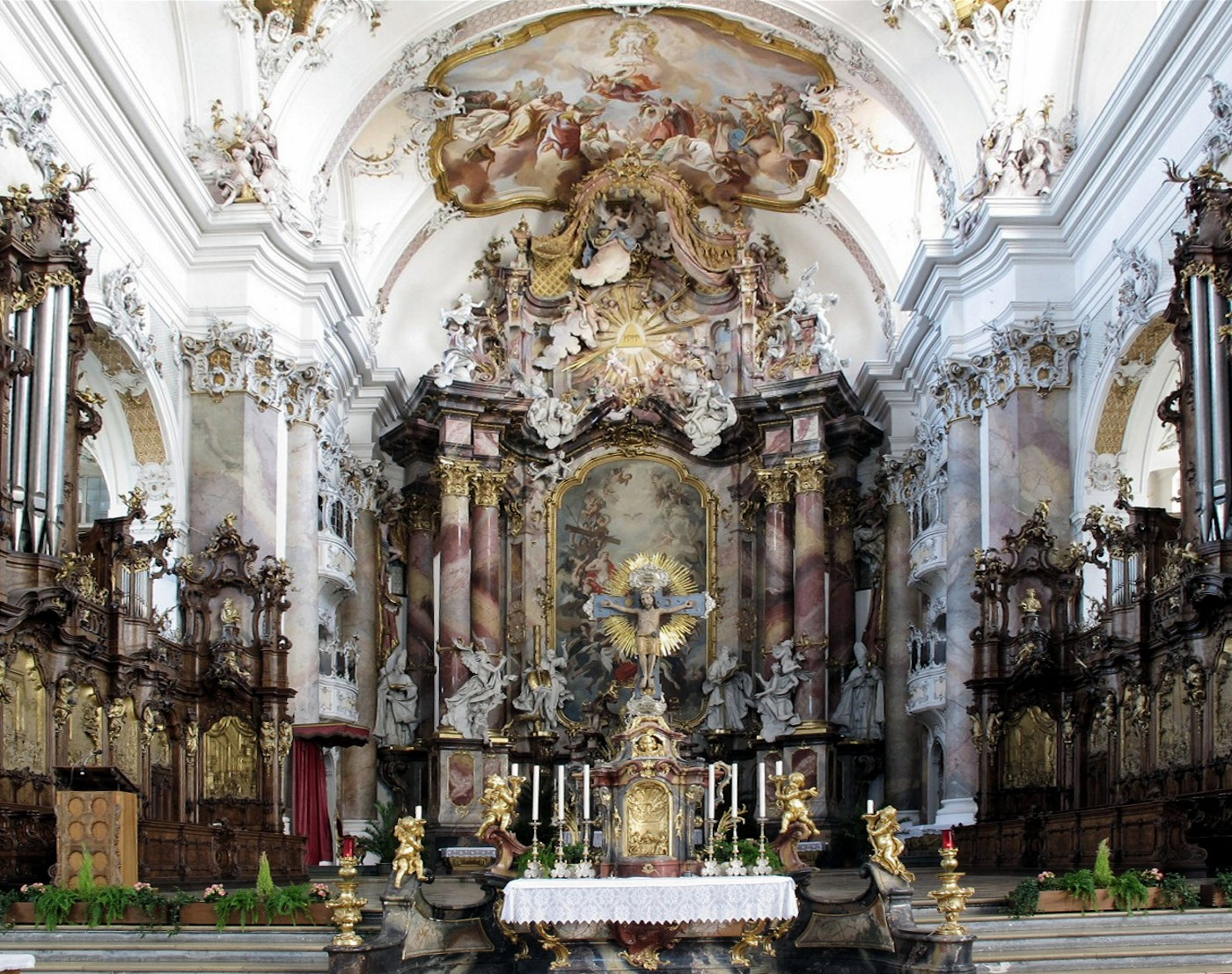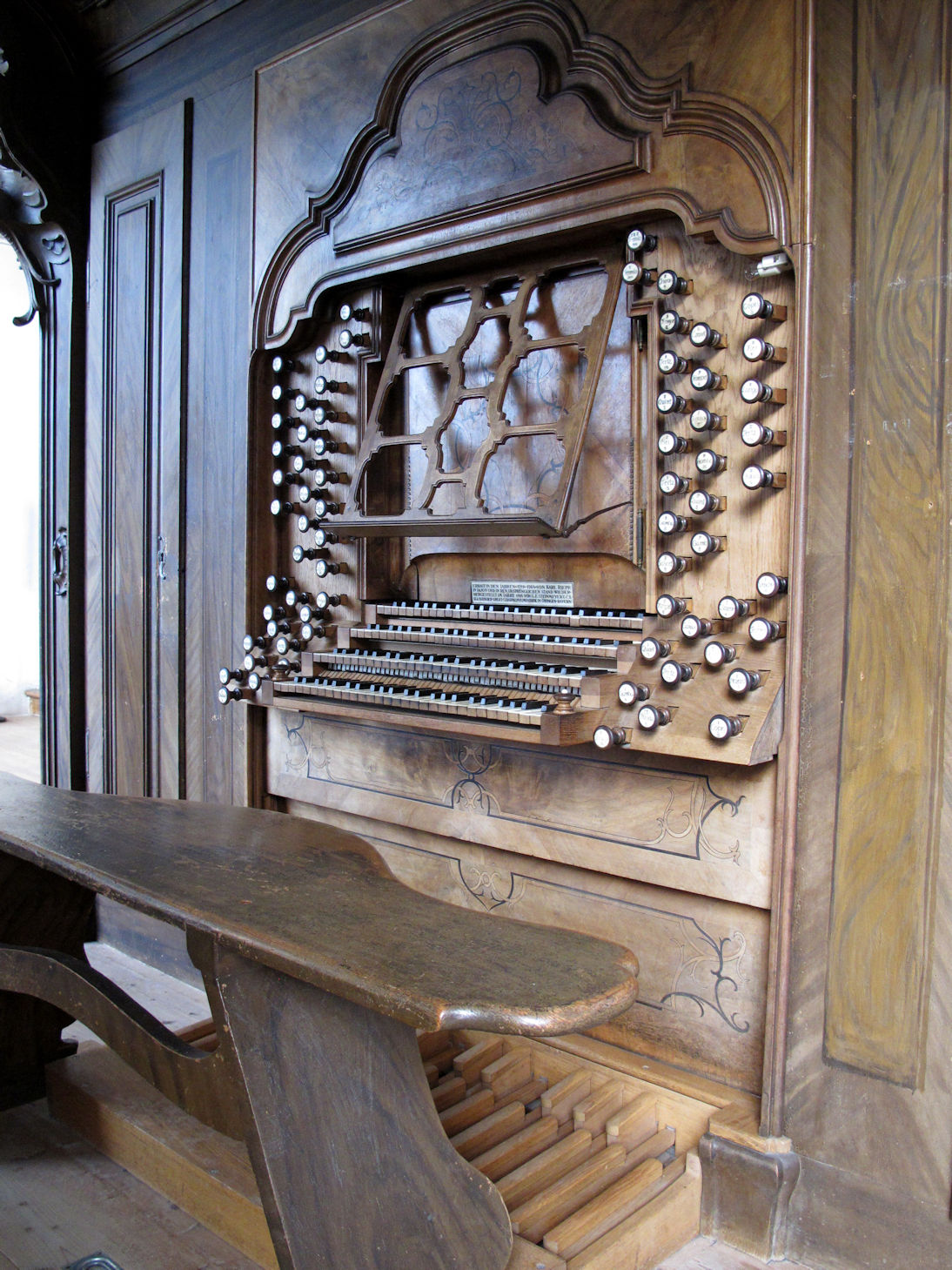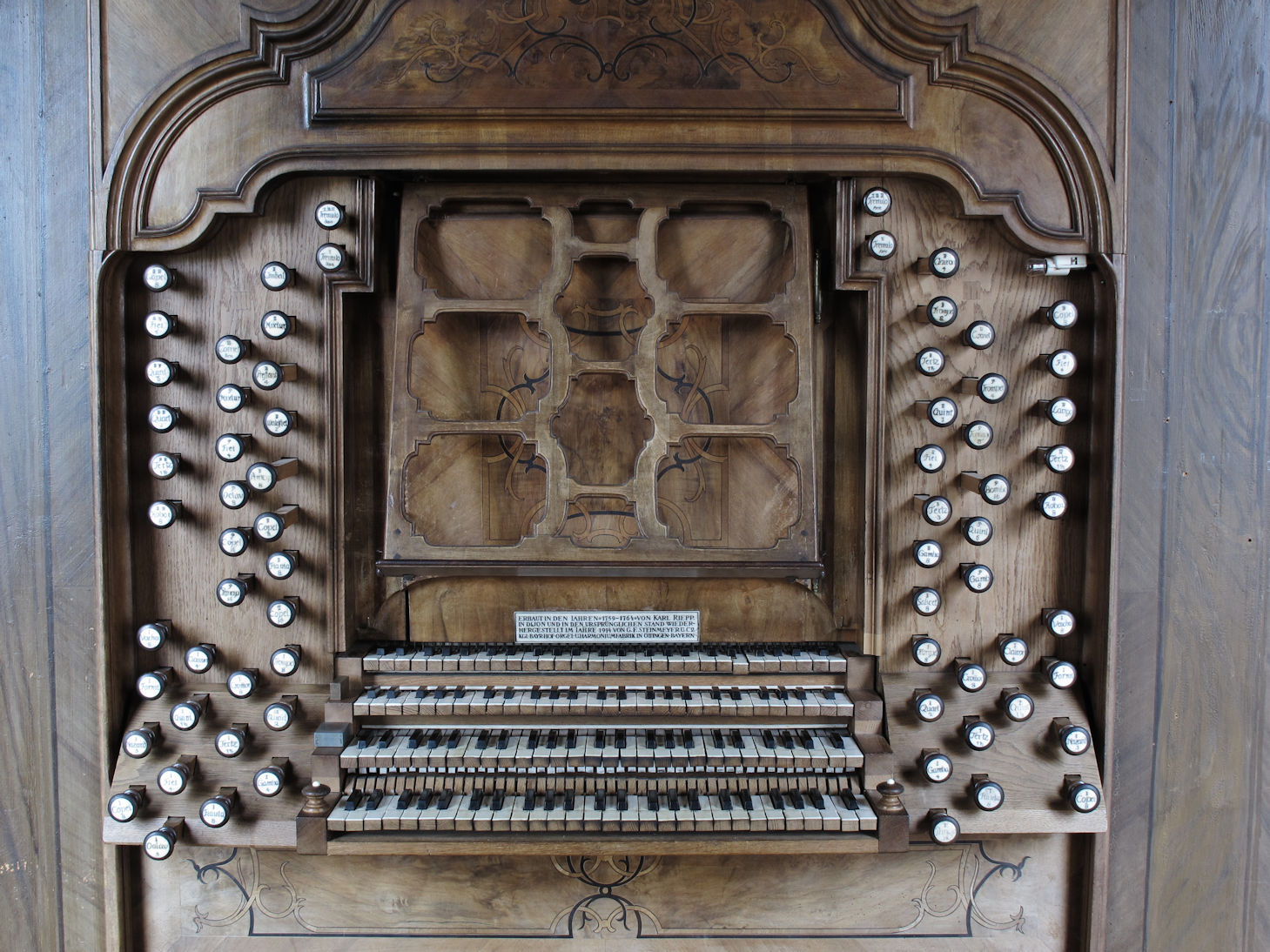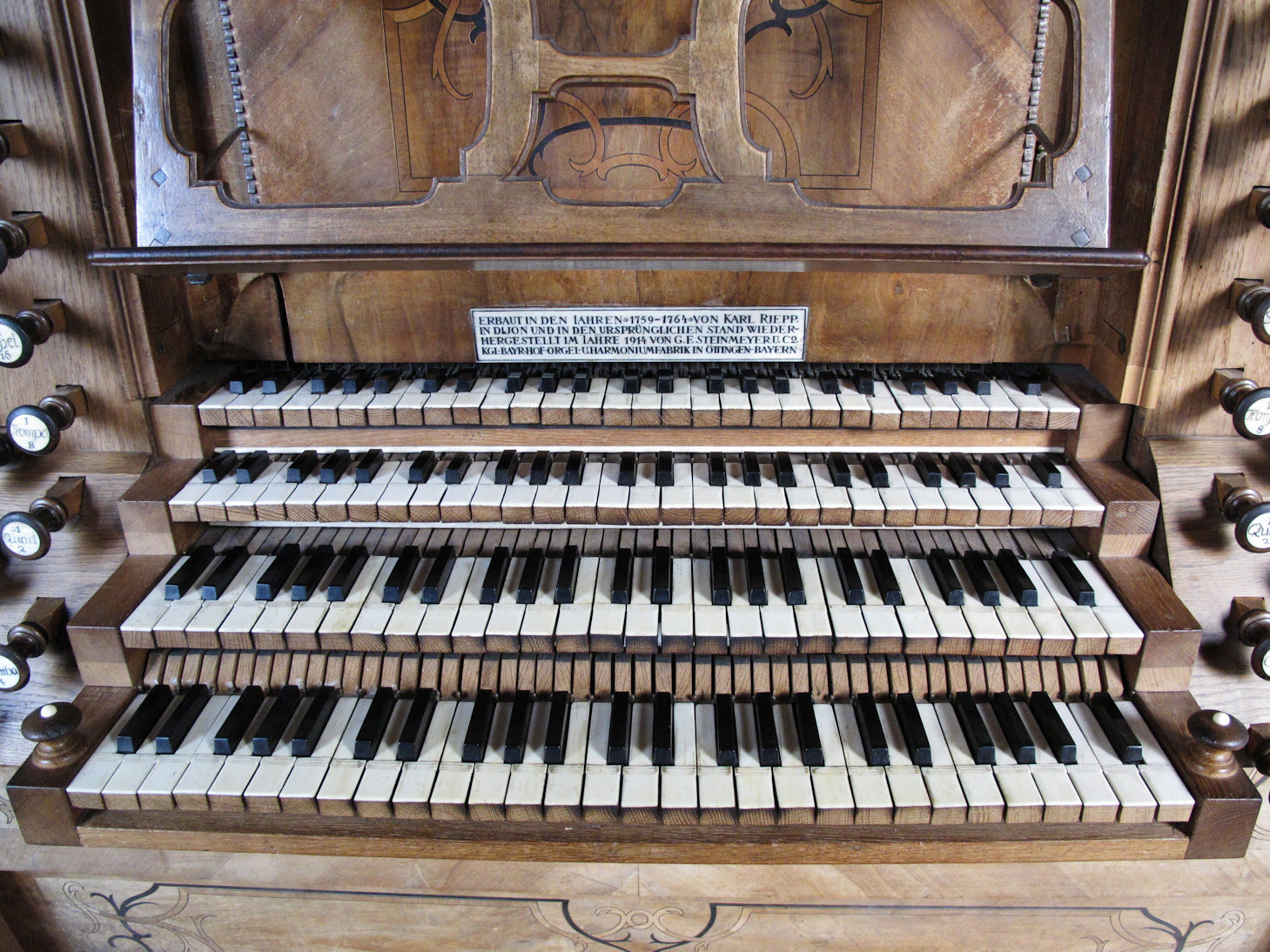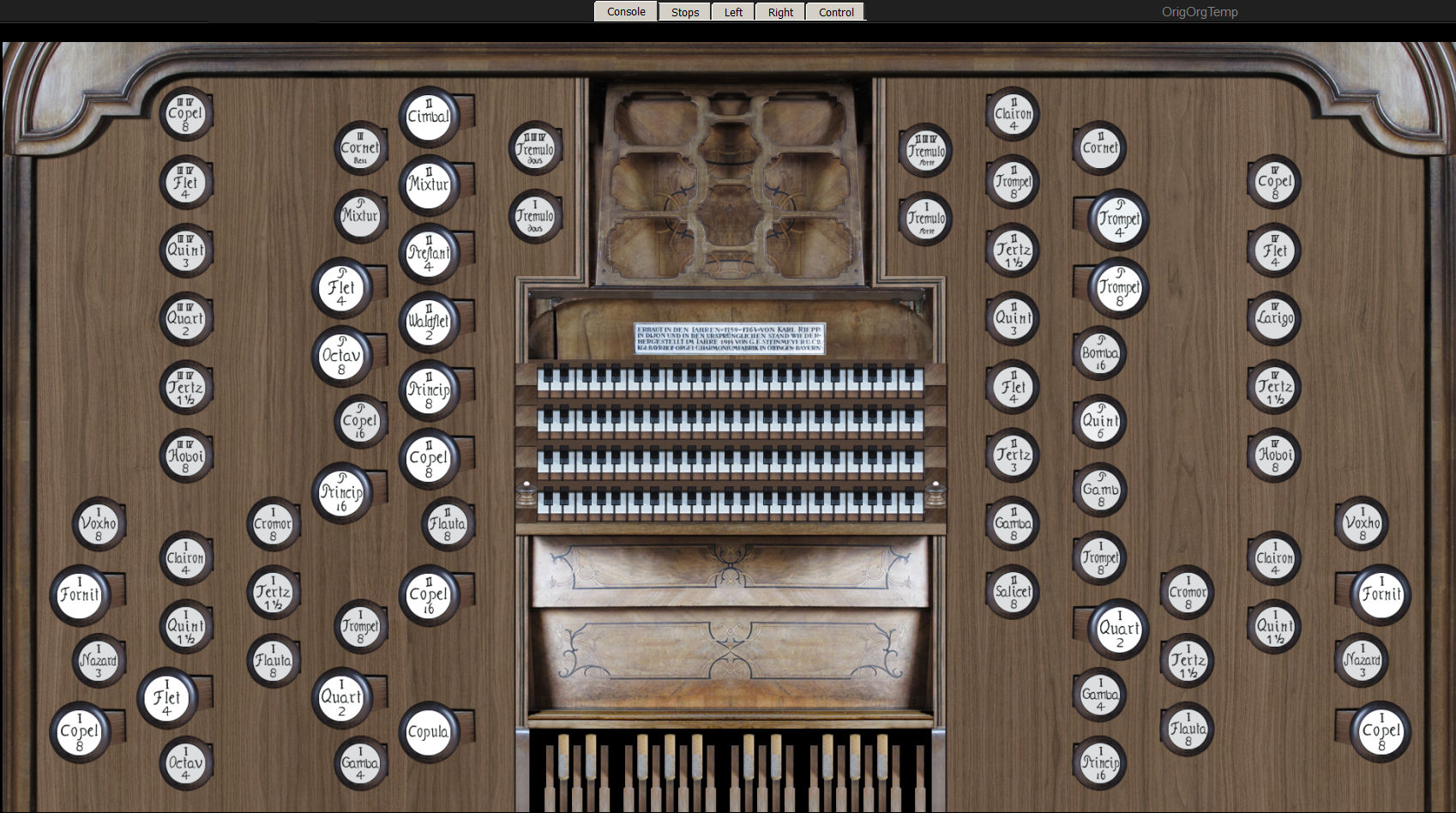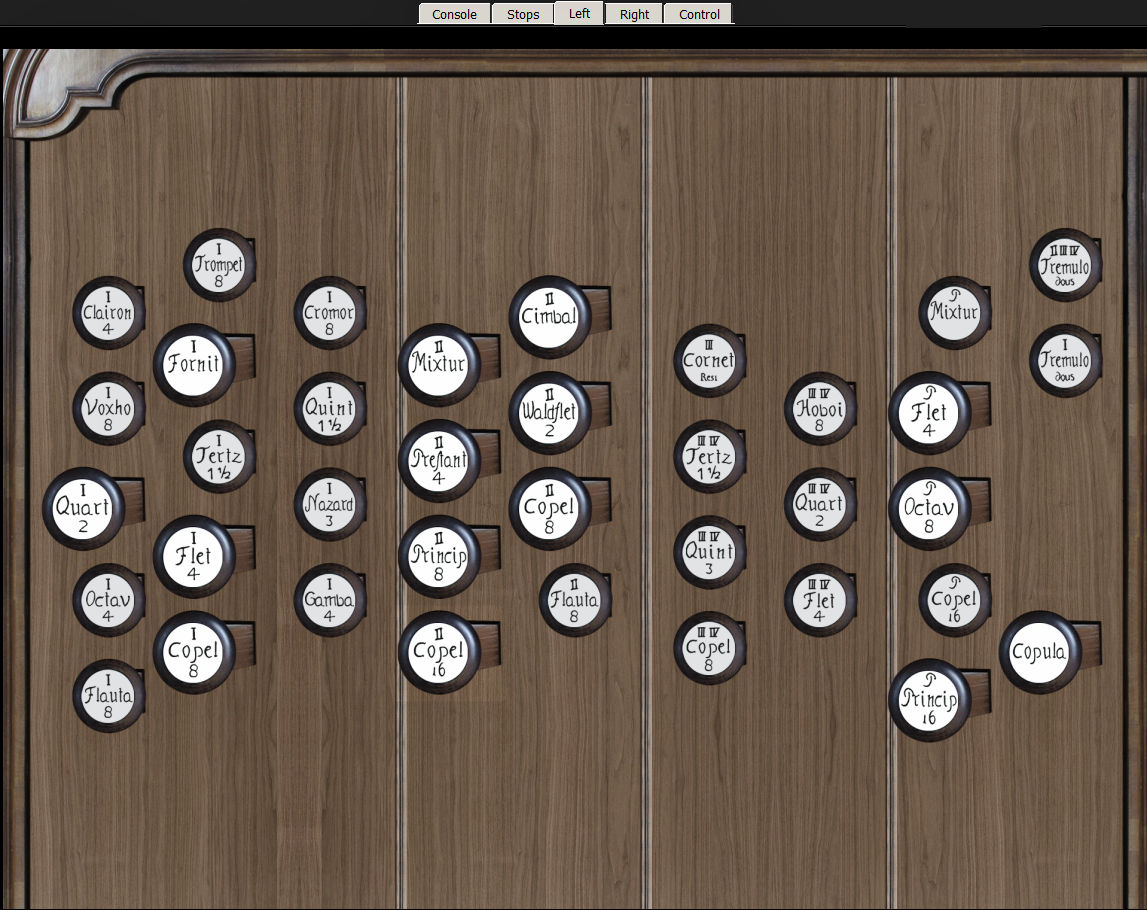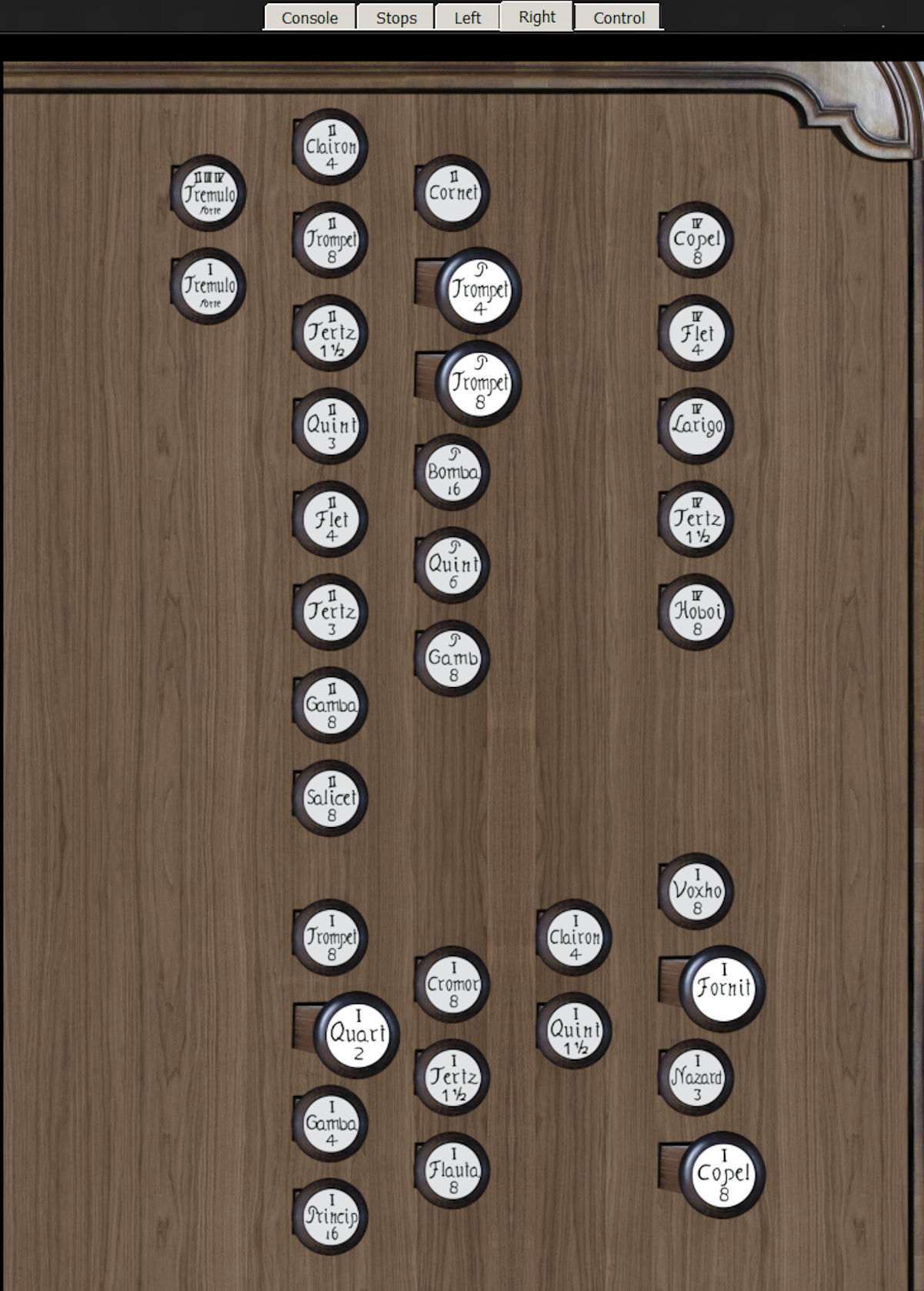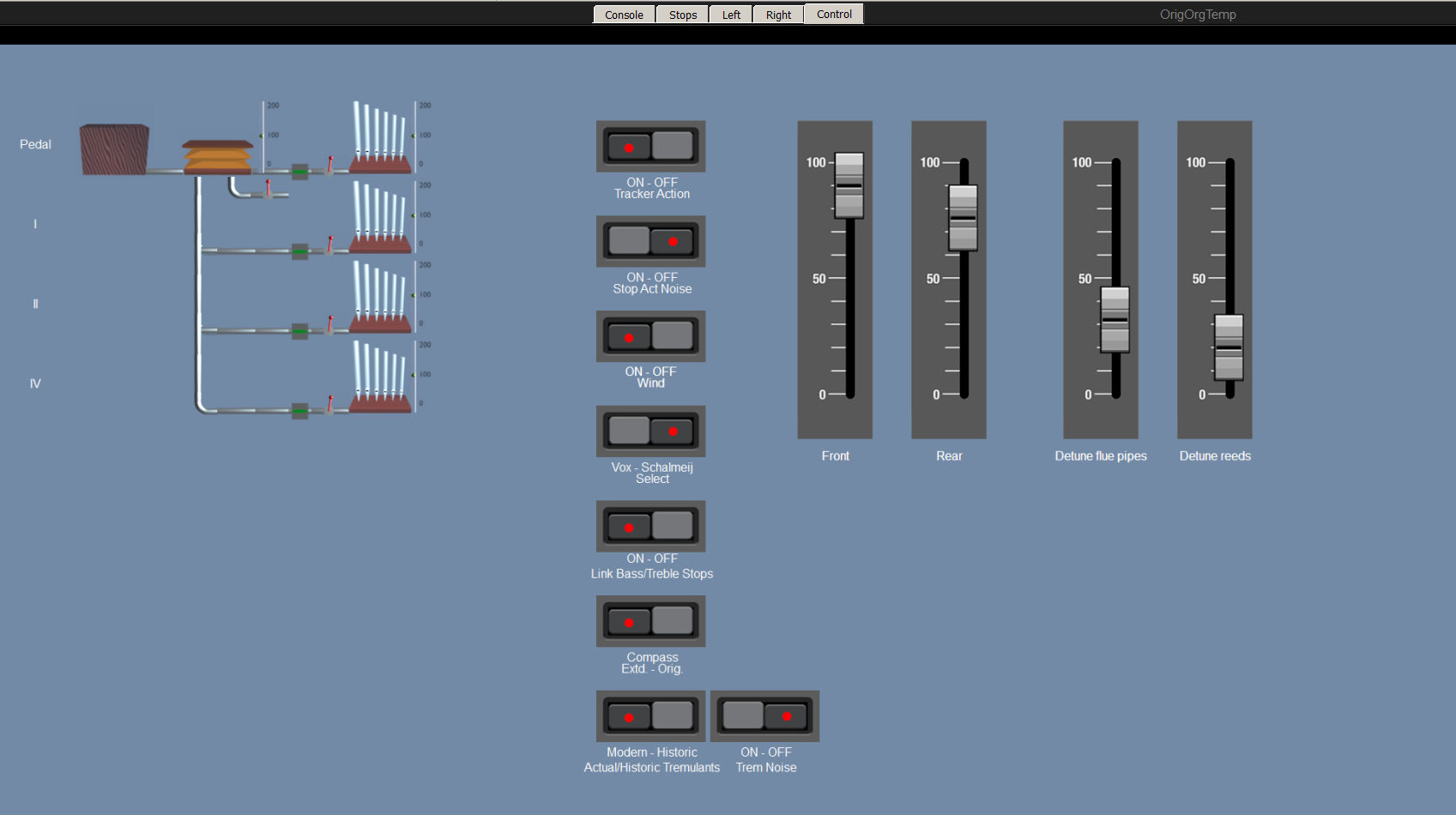1766 Karl Joseph Riepp Dreifaltigkeits Organ
Benedictine Abbey of Ottobeuren/Germany, Unter-Allgäu
Short Introduction and History
The smaller Holy Ghost organ and the large Holy Trinity organ of the Benedictine Abbey of Ottobeuren/Unterallgäu, founded in 764, are the only surviving instruments built by Karl Joseph Riepp and are both almost completely original. Due to their construction, quality craftsmanship and especially unique architecture and sound, they are an extremely important part of our international organ heritage.
They combine French and Southern German sound ideals and can be regarded as timeless organ treasures. The Rococo Holy Ghost organ is more Southern German orientated, while the large Holy Trinity organ has a more typical French character.
Riepp’s organ building style is characterized by numerous warm and full sounding foundation stops, partially lower pitched mixtures, powerful reeds with full resonator lengths, aliquots and cornets with wide scales and beautiful flutes. Exceptional is how well all the stops blend together.
"No verbal description could ever convey the perfection of Ottobeuren Trinity organ, a fine flower sown in France, but cultivated in Germany,
its sensual splendour, ranging from reeds and mutations solos of excellent piquancy to perhaps the best Organo Pleno of its period" (Peter Williams, "The European organ, 1450-1850").
The Rococo basilica sanctuary has a reverberation time up to 6 seconds.
Recording Technique
The organ was recorded in Okt. 2012/Jan. 2013 with 48 kHz, 24 bit, multi-channel, using the multi-release technique introduced by OrganArt. All stops were recorded with multiple release levels for short, medium and long key attacks for optimal acoustical mapping. Additionally recorded were up to three native tremulant sounds (no simulation!)
The set supports 4-channel (Surround and/or Variable Audio Perspective VAP).
See Location in Googlemaps
Thanks
Special thanks are due to Abbot Johannes Schaber OSB and titular organist Dr. Josef Miltschitzky for granting permission to record both Riepp organs and organ builder Weber/Leutkirch for his patient work on re-tuning the reed stop and mixtures, as well as smaller ad hoc repairs.
Virtual Console
Specification
II: Hauptwerk (C–d3)*01. Copel 16 I: Brüstungs-Positiv (C-f#, g–d3)*01. Princip 16 D |
III: Récit (C-f#, g–d3)*01. Cornet Resi (5f, from g) IV: Echo (C-e, f–d3)*01. Copel 8 B/D Pedal (C-c1)*01. Princip 16
|
Couplers
POS-HW (Shift Coupler) FacilitiesTremolo I dous (medium)
|
| * Switchable compass extension: Manuals C–f3, Pedal C–f1 + Transmission bass stops from IV (C-f#), extension Cornet Resi |
Pitch and Temperament
Slightly non-equal temperament, a1= 422 Hz
Requirements
Loaded Version |
Memory Requirements 3) |
Processor Speed 2) |
|
16-bit, compressed 1), 4-channel |
18.9 GByte | ≥ 2 GHz QuadCore 2) |
|
20-bit, compressed, 4-channel |
28.9 GByte |
≥ 2 GHz QuadCore 2) |
| 24-bit, compressed, 4-channel | 36.8 GByte | ≥ 2 GHz QuadCore 2) |
1) Lossless compression (no loss of sound quality!)
2) Recommended: Minimal Configuration: QuadCore, 32 GByte RAM, optimal Configuration: OctaCore, 64 Gbyte
3) To load this organ into Hauptwerk you will need enough free memory in your computer, due to the amount of playable stops, not including the operating system or any other programs that may be running!
We recommend a professional audio card (e.g. RME-Series) and a studio headphone (e.g. AKG Reference Headphone K701, K712) for optimal sound and room impression.
Demos
The following demo pieces were recorded with the Hauptwerk Advanced Edition software and the virtual organ sample set, with no additional effects processing.
First peliminary live recordings are to be found on ConcertHall-Webseite:
(Search, Organ: 1766 Riepp Dreifaltigkeits)
© OrganArt Media 2022, all rights reserved
No demo sounds may be used or transmitted in any form for public purposes without the prior written permission of the publisher!Informations, Discography and Weblinks
Web-Links
UNDER CONSTRUCTION
Discography:
Orgelportrait der historischen Riepp-Orgeln in der Basilika Ottobeuren
Franz Lehrdorfer und andere, Tonstudio Mauermann MAS 404, 1999 (remastered)
Musik an den drei Orgeln der Basilika Ottobeuren
Adalbert Meier, ambitus 91 612 CD, 1991/92

